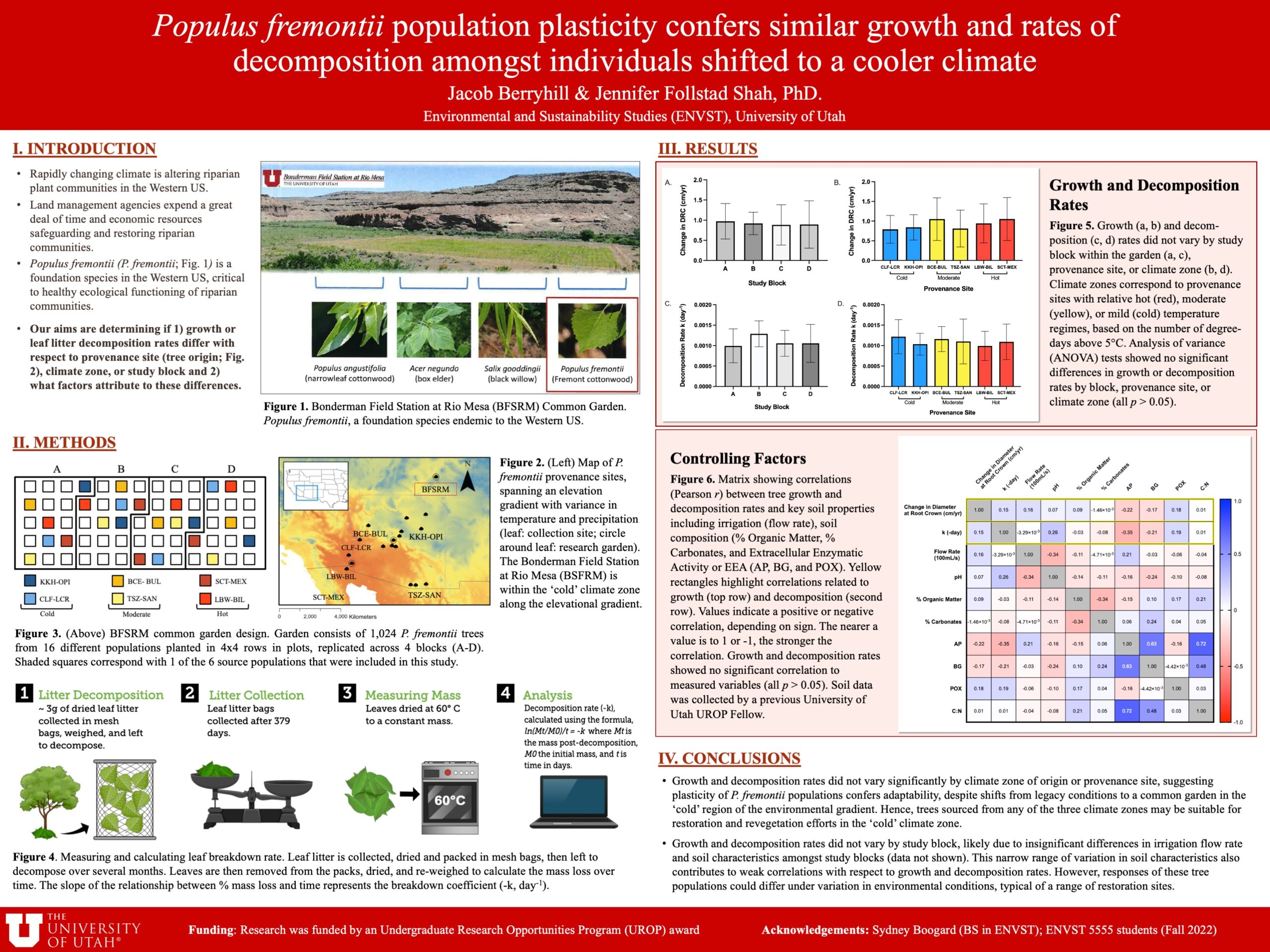Presenter Name: Jake Berryhill
Description
Riparian zones, which account for less than 1% of total land area of the western U.S., are particularly threatened by climate change. Drought, severe heat waves, and other pressures have altered riparian biotic assemblages threatening the survival of the critically important foundation species, Populus fremontii. We present a method to evaluate the impact of genetic differences on survivorship and growth rates of 1,024 P. fremontii trees sourced from 16 sites spanning 3 distinct climate zones (categorized as 'cold', 'medium', or 'hot'). Trees were planted as cuttings in a research garden at the Bonderman Field Station in Rio Mesa - a 'cold' climate zone - in 2014. Additionally, we measured leaf chemistry and rates of litter decomposition for 72 trees representing individuals from 6 sites spanning 3 climate zones, as inputs and degradation of organic matter are energy and nutrient subsidies to soil invertebrate and microbial communities within riparian corridors. Measurements of trunk diameter at the root crown and canopy collar along with observations of active foliage growth were collected and documented to measure the growth and survivorship of trees from each source population. Decomposition rates were determined by measuring mass loss of leaf litter left to decompose over the course of a year. We infer that differences in survivorship, growth, and leaf decomposition by source population or climate zone would indicate that genetic differences or climate legacies are important factors for understanding the persistence of P. fremontii to rapidly shifting environmental changes. Our analysis of leaf litter decomposition aims to expand on existing knowledge of the critical importance of leaf litter to the energy and nutrient cycles within riparian ecosystems. Collectively, our results aim to add to growing evidence that genetics should be considered when selecting trees for restoration projects in different climate regimes.
University / Institution: University of Utah
Type: Poster
Format: In Person
Presentation #A90
SESSION A (9:00-10:30AM)
Area of Research: Other
Email: jacob.berryhill@utah.edu
Faculty Mentor: Jennifer Follstad Shah

